Taking a year off before college can feel like stepping off the beaten path. Doubts might creep in: Will I fall behind? Will colleges look down on this? But a gap year, when planned intentionally, can be a powerful springboard, not a setback. In fact, more students than ever before are choosing to take gap years.
Think of a gap year not as a break from education, but as education in a different form. It’s a chance to learn outside the classroom, to gain real-world experience, and to discover passions you never knew you had. This article will provide all the keys to impress admissions.
What a Gap Year Really Is
A gap year is a period of time, typically a year, taken between high school graduation and the start of college or university. It’s a chance for students to step outside the traditional academic environment and engage in experiences that foster personal growth, exploration, and skill development.
It’s more than just an extended vacation. It’s a structured period of self-discovery. That said, some potential students are concerned that this is just a “rich kid’s” adventure. Although that can be the case for some, a gap year can be affordable for students who carefully plan.
The Gap Year Association’s National Alumni Survey has found that the majority of students believe their gap year helped them develop as a person. Many also said their time away from traditional school activities assisted them when looking for a job.
Busting the Myths: Common Concerns About Taking a Gap Year
Before we get into planning, let’s address some common misconceptions:
- Myth: It’s just for privileged kids. While financial resources can certainly shape gap year experiences, many affordable and even funded opportunities exist. Volunteering programs, work exchanges, and budget travel options can make a gap year accessible to a wider range of students. There are many organizations that provide grants, scholarships, and even full funding.
- Myth: Colleges frown upon it. Quite the opposite! Many colleges recognize the value of a well-structured gap year, viewing it as a sign of maturity, initiative, and a commitment to personal growth. Harvard University, for example, actively encourages admitted students to defer their enrollment and take a gap year.
- Myth: You’ll lose academic momentum. Studies have shown that gap year students often perform better academically than their peers who go straight to college. The increased maturity, focus, and sense of purpose gained during a gap year can translate into greater academic success.
- Myth: You’ll fall behind your friends. Life isn’t a race! Your personal growth and experiences are unique to you, and a gap year can provide a different perspective and a broader understanding of the world. And, in fact, you can make new friends.
- Myth: All you’re doing is traveling. While traveling the world is a very popular activity, it isn’t all a gap year is about. You could be volunteering, taking on an internship, or even taking classes to improve yourself.
The “Wow” Factor: What Makes a Gap Year Impressive to Admissions
Colleges aren’t just looking for good grades and test scores. They’re seeking students who are engaged, passionate, and ready to contribute to their campus communities. A well-planned gap year can showcase these qualities in spades.
So, what exactly impresses admissions committees?
- Purposeful Activities: A gap year spent binge-watching TV won’t cut it. Admissions officers want to see that you’ve used your time intentionally, pursuing activities that align with your interests and goals.
- Demonstrated Growth: Reflect on your experiences and articulate how they’ve shaped you. Colleges want to see that you’ve learned something about yourself, the world, and your place in it.
- Skill Development: Did you learn a new language, master a technical skill, or develop your leadership abilities? Highlight these accomplishments and explain how they’ll benefit you in college.
- Meaningful Contributions: Did you volunteer in your community, work on a social impact project, or contribute to a cause you care about? These experiences demonstrate your commitment to making a difference.
- Clear Goals: While exploration is encouraged, it’s important to have some direction. Colleges want to see that you’ve thought about what you want to achieve during your gap year and how it relates to your future aspirations.
- Self-Reflection: This is where you tie everything together. Show, through your application essays and interviews, how your gap year experiences have deepened your understanding of yourself and your goals.
Laying the Foundation: Before You Start Planning Your Activities
Before diving into specific activities, it’s important to establish a strong foundation:
Understanding Your Motivations
Why do you really want to take a gap year? Are you feeling burnt out after high school? Do you want to explore different career paths? Are you seeking a new challenge?
Identify your core motivations to guide your planning process. If you are simply trying to run away from your problems, taking a gap year isn’t the answer. But a well-defined and thought-out goal will help you shape your experiences.
Identifying Your Interests and Passions
What are you genuinely curious about? What activities make you feel energized and engaged? Think beyond your academic interests and explore your hobbies, values, and personal aspirations.
Setting Realistic Goals
What do you hope to accomplish during your gap year? Do you want to gain specific skills, explore a particular field, or make a difference in the world? Set achievable goals that will challenge you without being overwhelming.
Consider this SMART framework when creating your goals:
- Specific: Your goals should be clear and well-defined.
- Measurable: You should be able to track your progress and measure your success.
- Achievable: Your goals should be realistic and attainable.
- Relevant: Your goals should align with your interests and values.
- Time-bound: You should set a deadline for achieving your goals.
Budgeting and Funding
Gap years don’t have to be expensive. Explore various funding options, including:
- Savings: Start saving early and set a budget for your expenses.
- Part-time work: Consider working part-time during your gap year to earn money.
- Scholarships and grants: Research and apply for scholarships and grants specifically designed for gap year students.
- Fundraising: Get creative and launch a fundraising campaign to support your gap year activities.
- Crowdfunding: Consider starting a crowdfunding campaign. This can be a great way to raise money from friends, family, and even strangers who believe in your goals.
Deferring College Admission
Once you’ve decided to take a gap year, contact the colleges you’ve been accepted to and request a deferral of admission. Most colleges are willing to grant deferrals to students who have a clear plan for their gap year. Be sure to follow the college’s specific instructions and deadlines for requesting a deferral.
Crafting Your Gap Year: Activity Ideas That Stand Out
Now for the fun part! The activities you choose will depend on your interests, goals, and budget. Here are some ideas to get you started:
Volunteering and Service
- International Volunteer Programs: Work on sustainable development projects in developing countries. Many non-profit organizations provide international volunteering opportunities. For example, the Peace Corps offers volunteers the chance to work abroad in various fields, including education, health, and community development.
- Local Community Service: Contribute to organizations in your own community that address issues you care about. You can find local volunteer opportunities through websites like VolunteerMatch or Idealist.
- Disaster Relief: Respond to natural disasters and humanitarian crises around the world. Habitat for Humanity is a non-profit organization that builds affordable housing around the world. They often have volunteer opportunities for people interested in construction and community development.
Pro-Tip: Make sure you reflect on these experiences. Why did you choose the organization you volunteered for? What were some of the challenges you had to overcome? What were your accomplishments?
Internships and Work Experience
- Industry-Specific Internships: Gain practical experience in a field that interests you. Internships can provide valuable insights into different career paths and help you develop valuable skills. Large companies like Google, Apple, and Microsoft offer competitive internship programs in various fields, including engineering, marketing, and finance.
- Start-up Opportunities: Immerse yourself in the fast-paced world of a start-up and learn about entrepreneurship. Start-ups often offer flexible and hands-on learning experiences. Look for start-up opportunities through websites like AngelList or LinkedIn.
- Seasonal Work: Work at a national park, ski resort, or summer camp. Seasonal work can provide you with unique experiences and the opportunity to explore new places. Companies like Vail Resorts and Yellowstone National Park offer seasonal employment opportunities.
Pro-Tip: Many companies value their internships and will potentially offer you a full-time job. Make sure you set yourself up for success.
Educational Pursuits
- Language Immersion Programs: Immerse yourself in a new culture while learning a new language. Language immersion programs can be a great way to improve your language skills and gain a deeper understanding of a different culture. Organizations like Middlebury Interactive Languages offer online language courses, as well as immersion programs in various countries.
- Online Courses and Certifications: Acquire new skills or deepen your knowledge in a specific area. You can find online courses and certifications through platforms like Coursera, edX, and Udemy.
- Gap Year Programs: Structured programs that combine travel, volunteering, and personal development. A structured gap year program can provide you with a well-rounded and supported experience. Organizations like Global Citizen Year and Thinking Beyond Borders offer structured gap year programs with a focus on social impact and global citizenship.
Pro-Tip: When you immerse yourself into a different country, be sure to respect their culture. Learn about their customs and way of life.
Travel and Exploration
- Backpacking: Explore different countries and cultures on a budget. Backpacking can be a great way to see the world while developing your independence and resourcefulness. Websites like Nomadic Matt offer tips and resources for budget travel and backpacking.
- Work Exchange Programs: Exchange your skills for accommodation and meals while traveling. Work exchange programs can be a great way to travel on a budget while gaining new skills and experiences. Websites like Worldpackers and Workaway connect travelers with hosts who are looking for volunteers.
- Adventure Travel: Challenge yourself physically and mentally with outdoor activities like hiking, climbing, and kayaking. Adventure travel can be a great way to push yourself outside of your comfort zone and gain a new appreciation for nature. Organizations like the National Outdoor Leadership School (NOLS) and Outward Bound offer wilderness expeditions and leadership training programs.
Pro-Tip: Try to create an itinerary before you go and create a list of must-see places, but allow for spontaneity. Sometimes the best experiences come from unplanned adventures.
Creative and Artistic Pursuits
- Photography or Filmmaking Projects: Document your experiences and tell stories through visual media. Engaging in photography or filmmaking projects can also help you refine your creative eye and technical skills.
- Writing and Blogging: Share your thoughts, experiences, and insights with the world. Platforms like Medium and WordPress are a great way to share your content.
- Music or Art Programs: Develop your artistic talents and explore new forms of creative expression. Many community centers and art organizations offer affordable workshops.
Pro-Tip: Make sure you get honest feedback from other writers, photographers, or artists.
Making It Count: Documenting and Reflecting on Your Gap Year
Your experiences will be incredibly valuable, but only if you can articulate what you learned and how you grew.
Keeping a Journal
Record your thoughts, feelings, and experiences throughout your gap year. A journal can be a valuable tool for self-reflection and personal growth. It can also serve as a source of inspiration for your college application essays.
Creating a Portfolio
Showcase your accomplishments and projects through a website, blog, or online portfolio. This can be a great way to demonstrate your skills and experiences to potential employers and college admissions officers. Platforms like WordPress or Wix are a great way to share your content and images.
Seeking Mentorship and Guidance
Connect with mentors, advisors, or professionals who can provide support and guidance. Mentors can help you navigate challenges, make informed decisions, and stay on track towards your goals.
Reflecting on Your Growth
Take time to reflect on your experiences and identify the key lessons you’ve learned. Consider these questions:
- What were your biggest challenges and how did you overcome them?
- What did you learn about yourself, your interests, and your values?
- How did your gap year experiences shape your goals for the future?
- What skills did you develop and how will they benefit you in college and beyond?
The Application Edge: Showcasing Your Gap Year to Colleges
The gap year is over, and it’s time to apply to college. All your self-reflection, goal-setting, and hard work will pay off as you communicate your experiences to admissions.
Highlighting Your Experiences in Your Application
- Essays: Use your gap year experiences as the centerpiece of your application essays. Tell compelling stories that showcase your personal growth, skill development, and meaningful contributions. Make sure you follow the essay instructions to a T.
- Activities Section: Provide a detailed description of your gap year activities in the activities section of your application. Highlight the skills you developed, the challenges you overcame, and the impact you made.
- Letters of Recommendation: Ask mentors, supervisors, or other individuals who know you well to write letters of recommendation. Ask them to highlight your gap year experiences and speak to your personal growth and maturity.
Tailoring Your Application to Each College
Research each college’s values and mission and tailor your application to demonstrate how your gap year experiences align with their goals. Highlight the skills and experiences that are most relevant to each college’s specific programs and opportunities.
Articulating Your Future Goals
Connect your gap year experiences to your future goals and explain how they have prepared you for success in college and beyond. Clearly articulate your academic and career aspirations and demonstrate how your gap year has helped you gain clarity and purpose.
Avoiding Common Pitfalls: What Not to Do
While a well-planned gap year can be a huge asset, a poorly executed one can raise red flags.
- Lack of Purpose: A gap year without clear goals or intentions can be seen as a waste of time.
- Unrealistic Expectations: Don’t set yourself up for disappointment by expecting your gap year to be a life-changing epiphany.
- Poor Planning: Failing to plan your activities, budget your expenses, or secure necessary accommodations can lead to frustration and setbacks.
- Insufficient Reflection: Neglecting to reflect on your experiences and articulate what you’ve learned can diminish the value of your gap year.
So, Is a Gap Year Right for You?
A gap year is a significant decision that requires careful consideration. It’s not a magic bullet, but it can be a powerful tool for personal growth, exploration, and skill development.
If you’re feeling burnt out, unsure about your future, or seeking a new challenge, a gap year might be the perfect opportunity for you. With careful planning, intentional activities, and thoughtful reflection, you can create a gap year experience that impresses colleges and sets you up for success in college and beyond.
Don’t let fear or uncertainty hold you back. Embrace the opportunity to step outside the traditional academic path and create a unique and meaningful gap year experience that will shape your future.

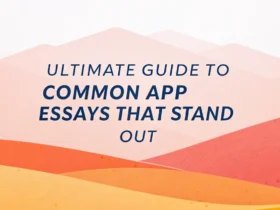
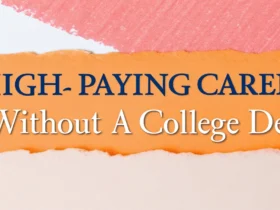

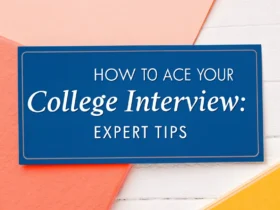
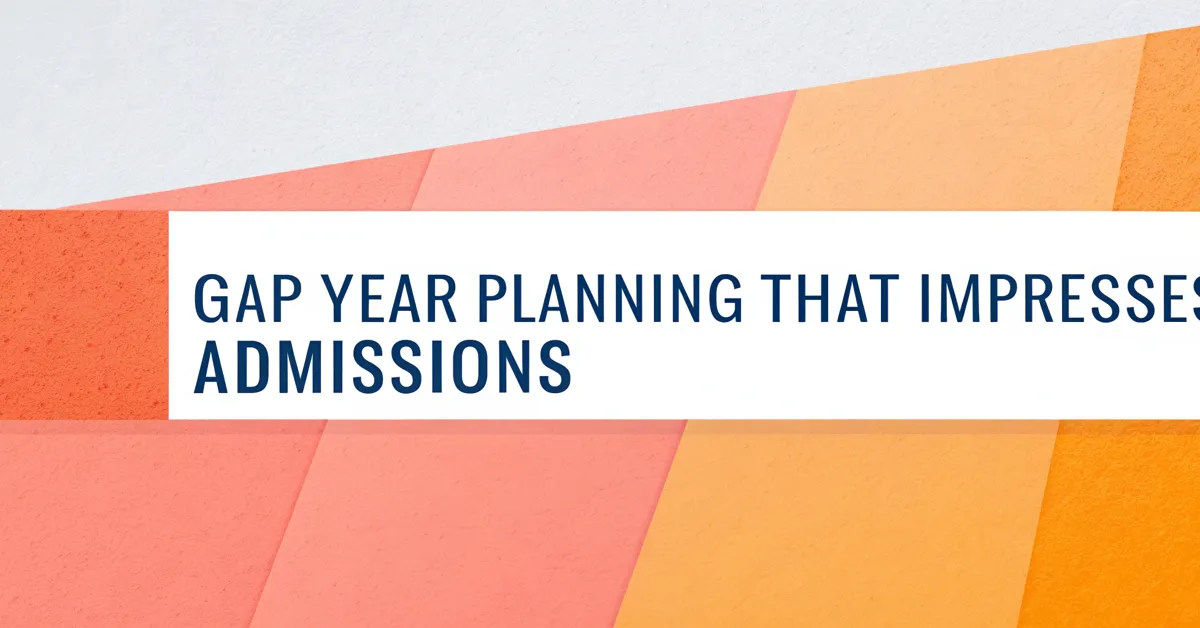
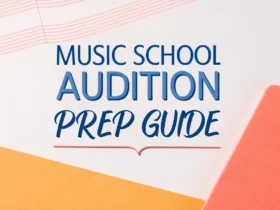






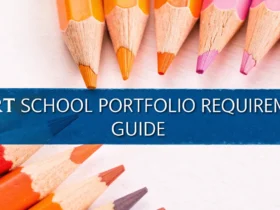

Leave a Reply
View Comments